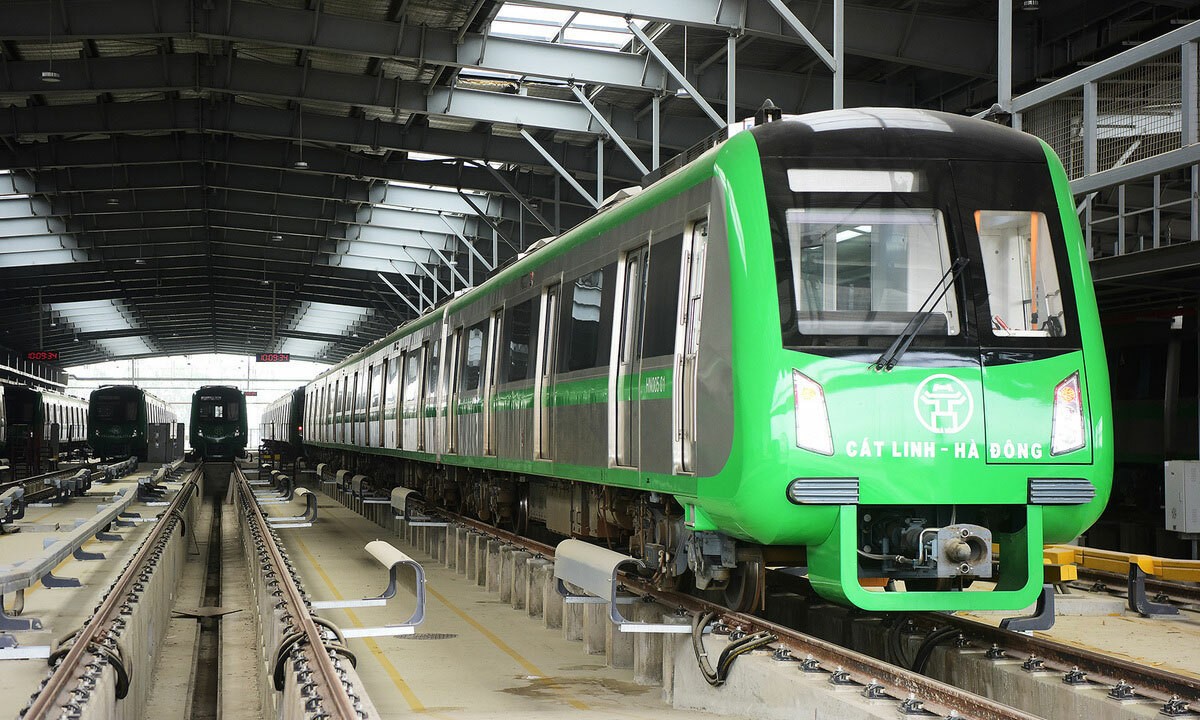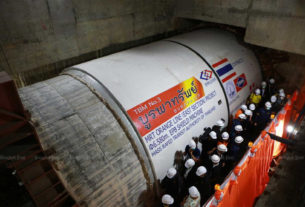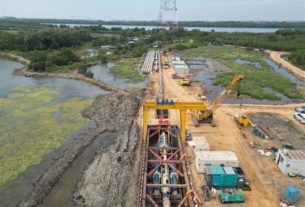
Vietnam’s urban rail projects fall years behind schedule as payments to contractors lag
Stalled Ho Chi Minh City line leaves Hitachi and other contractors hanging
Vietnam’s first urban rail projects have fallen years behind schedule as payments to contractors are held up by risk-averse political decision-making.
Construction began in 2012 on the first section of Ho Chi Minh City’s planned rapid transit network, with service originally slated to start in 2018. But the opening of the Japanese-funded Line 1 eventually was pushed to the end of 2021, and further delays to late 2023 or 2024 are now expected.
Two lines in Hanoi — one funded by China — were expected to open in 2015 but have not begun service. One may open this year, while the other is expected to debut in 2023 or later.
Japanese contractors that saw the Ho Chi Minh City project as a can’t-miss opportunity have contended with repeated delays.

“We hope to overcome the various problems and complete it as soon as possible,” said a manager at civil engineering company Nippon Koei, which heads the consulting consortium for the rail project.
Line 1 stretches 20 km and connects central Ho Chi Minh City with the northeastern suburbs of Vietnam’s largest city and commercial capital. New elevated sections and station buildings are being built in the 43.7 trillion dong ($1.92 billion) project.
Hitachi signed on to provide the carriages. Trading house Sumitomo Corp. and engineering groups Sumitomo Mitsui Construction, Shimizu and Maeda are among those handling construction. Much of the costs are to be covered by Japan’s government through official development assistance.
But design changes and other problems along the way sent the price tag soaring to nearly triple the initial planned cost. Changes in the budget need to be approved by Vietnam’s parliament, but these deliberations stalled over government reluctance to add to the public debt.
Unpaid bills topped $100 million in 2018. Kunio Umeda, the Japanese ambassador to Vietnam at the time, took the unusual step of sending a letter to top Vietnamese officials. Construction will cease if missed payments persist, Umeda wrote.
Vietnam in 2019 began work toward resolving the delays. But in July of this year, the consulting consortium suspended work, citing the lack of payments stretching back more than four years. This has set back the entire project further.
Hitachi started delivering train cars in October 2020. Though nearly 90% of Line 1’s construction is completed, hurdles remain in launching service. Officials blame the delay on the coronavirus pandemic, but multiple contractors attribute it to the postponed payments.
Vietnamese law offers a potential explanation. A government official who approves an infrastructure project can be held criminally liable for accidents or procedural missteps. Some senior officials have been subjected to anti-corruption investigations.
“No one wants to assume the final responsibility,” said a source close to the rail construction.
Hanoi’s Line 2A rail project faces similar problems. The 13 km line, an investment now totaling around $900 million, is financed heavily by development assistance from China.
Construction began in 2011, and service was initially due to start in 2015, according to local media. The project has been delayed about 10 times, missing the most recently announced launch date of April 2021.

Vietnam blames the delays on the contractor, China Railway Sixth Group. But construction is completed, and a French consulting firm determined that Line 2A is safe to operate.
Roughly $7.8 million in unpaid additional consulting fees were discovered last month. Owing to the effect of the country’s coronavirus lockdowns, negotiations appear to be dragging on further.
The Hanoi metro Line 3 project, whose financial backers include France and the Asian Development Bank, is also running behind schedule.
Nearly 20 urban train projects are planned for Ho Chi Minh City and Hanoi alone, but they have generally fallen behind schedule. Though delayed infrastructure projects are common in Southeast Asia, Vietnam is particularly prone to slowness because of the lack of clarity in the authority held by the ruling Communist Party, the central government and the city governments, observers say. Inaction on the delays could discourage the foreign investment that the country has relied on to drive growth.
“Projects that involve government expenditures in particular take time,” a diplomatic source said.
Vietnam’s economy was growing 7% a year prior to the pandemic. But as urban congestion worsens, the delays in opening rail lines will exacerbate environmental problems and disrupt economic development.
The economy shrank 6.17% on the year in the third quarter, the first contraction since Vietnam started disclosing quarterly data in 2000.
Source: https://asia.nikkei.com/Business/Transportation/Vietnam-urban-rail-projects-fall-years-late-as-payments-lag



